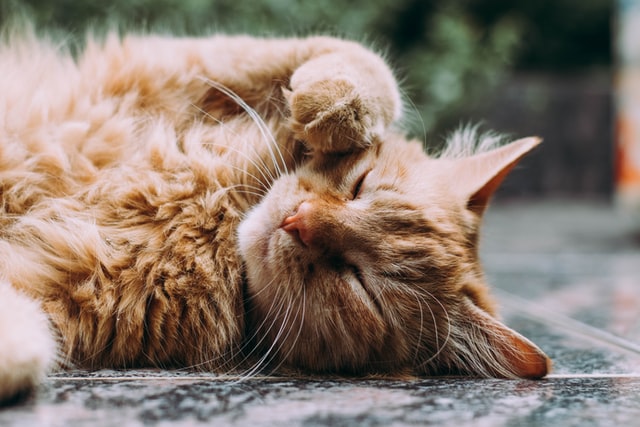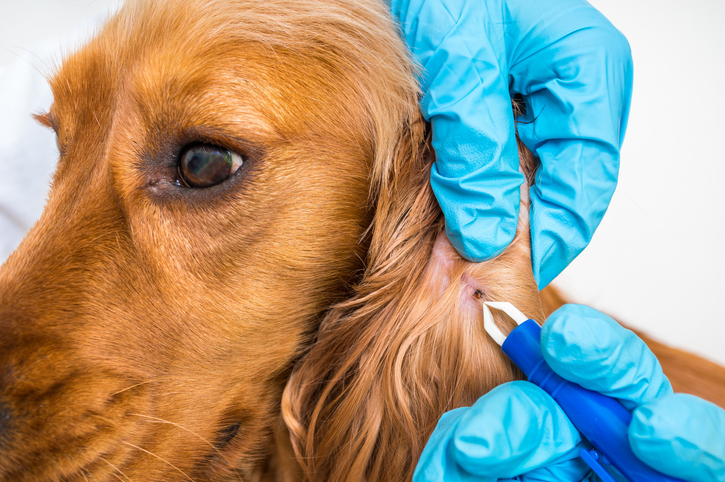There’s nothing quite as concerning as noticing your pet is getting sick and not knowing what the problem is. It can be even more difficult for cat owners in particular, since cats tend to hide their illnesses as much as possible. However, if you’ve started to notice your cat coughing or wheezing, there are a few things to be on the lookout for so you can get to the bottom of their condition and help them as soon as possible.
One thing to bear in mind is that coughing is not always a concern in cats. Cats will usually cough when passing hairballs, which is a perfectly normal response. However, you should keep an eye out for a few things so you can tell if your cat is in need of help.
Causes for coughing in cats
There are a few problems and conditions that can make your cat start coughing, ranging from serious concerns to mild issues. Like humans, cats cough as an instinctive response to clear the airway of some kind of irritant. Some of the most common causes for coughing in cats include:
- Asthma
- Respiratory infections or diseases
- Allergies to dust, pollen, or strong scents
- Heartworm or other parasites (lungworm)
- Passing hairballs
As you can see, there’s all manner of reasons for your cat to be coughing, and some are much more serious than others. With that in mind, here’s a list of things to be on the lookout for in order to keep your cat as healthy as possible.
1. Coughing without hairballs
This is often an owner’s first sign that a cat’s cough is not normal, and might be in need of medical attention. It’s common for cats to pass one or two hairballs a month, which is usually accompanied by a dry cough. However, if they’re coughing like this more frequently than that, and especially if they don’t pass a hairball during the coughing, it could be a sign of a bigger problem. If your cat is having frequent or semi-frequent cough attacks, it could be a sign of feline asthma, which is a very serious condition if left untreated.
2. Persistent, chronic coughing
One of the most worrying ways for coughing in cats to show up is when it happens repeatedly. If you notice your cat start coughing, keep a close eye on them in the following days. If it’s continuing without seeming to get better, or if it’s worsening, it could be a sign of asthma or an infection, and they’ll likely need to see a vet right away.
3. Wet coughs
Like humans, cats will sometimes have productive, or wet coughs when sick. These are caused by excess mucus and phlegm building up in the airway, which is often a sign of a lower respiratory infection. A wet cough is usually much more of a concern than a dry one, so be sure to take your cat to a veterinarian as soon as possible if you notice it.
4. Wheezing
If your cat is wheezing when breathing, particularly between coughs, it could be a sign that they’re not getting enough oxygen. The wheezing sound is usually caused by parts of the airway being constricted, meaning oxygen is not passing through as easily as it should be. This can be caused by swelling and inflammation, and is often a sign of an infection or asthma.
5. Sneezing
Like humans, cats can sneeze from time to time without being sick or having other issues. However, if they’re sneezing a lot, and especially if they’re coughing or wheezing at the same time, it could indicate a more serious problem. Since it can be caused by allergies, or a viral or bacterial infection, sneezing can be hard to trace back to an original issue. That’s why it’s a good idea to get your cat checked out by a vet if they’re frequently sneezing.
6. Weight loss and lethargy
Cats are predators, which means just about every cat keeps those primal instincts locked away. One of these instincts is a cat’s response to being sick, where they’ll often hide away and isolate themselves until they recover. This instinct traces back to cats keeping themselves safe when they’re unable to defend themselves, but it can make keeping an eye on your cat’s health more difficult. If, in addition to a cough, you’ve noticed your cat being more lethargic and stationary than usual, or if they begin to lose weight, it could be a sign of an infection or a parasite, which will need to be treated by a veterinarian right away.
7. Returning cough
It can be scary as a cat owner to think you’ve overcome a cat’s cough, only for it to return days, weeks, or months later. If your cat’s cough keeps coming back, it’s likely a sign of a more serious issue in your cat, such as feline asthma. Make sure to bring them into your vet if you notice a cough that keeps coming back.
How to Help Your Coughing Cat
If your cat is coughing, it’s almost always a health concern. The only time you shouldn’t be worried is if they’re only coughing while passing hairballs, and seem to be breathing properly at all other times. If your cat is experiencing wheezing, coughing, sneezing, or any of the other issues listed above, it’s likely a sign that something is going on with your furry friend. It could be a number of causes, however you won’t be able to know for sure until your cat is examined by a professional.
Always defer to your veterinarian when treating a cat’s cough. Attempting treatment without a professional diagnosis can not only be ineffective, but also it may even worsen your cat’s illness. Your veterinarian will provide recommendations and advice to look after your cat depending on what they find in the examination, but here are a few ideas to help manage symptoms for specific conditions:
- If your vet discovers your cat has an allergy, do what you can to eliminate any allergy triggers in the house. Avoid using scented sprays, oil diffusers, and harsh chemicals in the house. Don’t smoke around your cat, and consider switching to a low dust litter for their litter box.
- If your cat is found to have feline asthma, make sure you’re diligent about treating this condition. While feline asthma is a lifelong condition and unfortunately there is no cure for it, it can be successfully managed when caught early. Medications for asthma in cats come in a few different forms, including oral, injectable, and inhaled. Inhaled medications are preferred and usually the most effective, and work by reducing swelling and opening constricted airways.
- Other medications are sometimes prescribed by veterinarians to treat an ongoing or otherwise troublesome cough. Depending on the root source of the issue, these can include cough suppressants, antibiotics, or anti-parasite medication.
If your cat is dealing with an ongoing cough, or any other persistent health issue, you owe it to them to get the best care possible. Choosing a trusted veterinarian is one of the most important things you can do to keep your cat safe and healthy, so you should always make it a priority to visit them before your cat is in need of more urgent medical attention.
Creative Commons Attribution: Permission is granted to repost this article in its entirety with credit to Hastings Veterinary Hospital and a clickable link back to this page.






